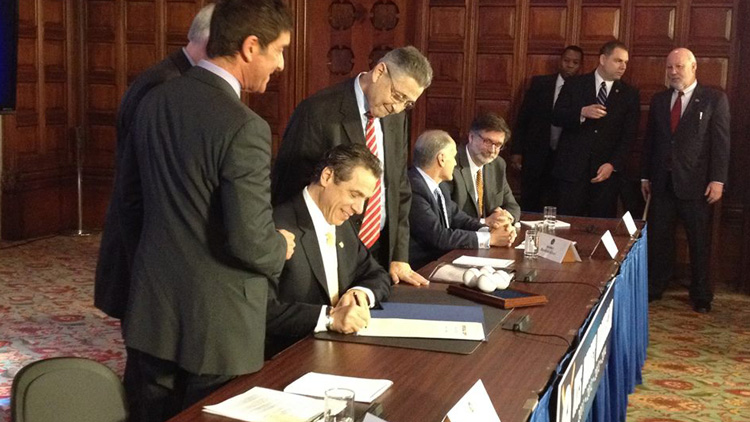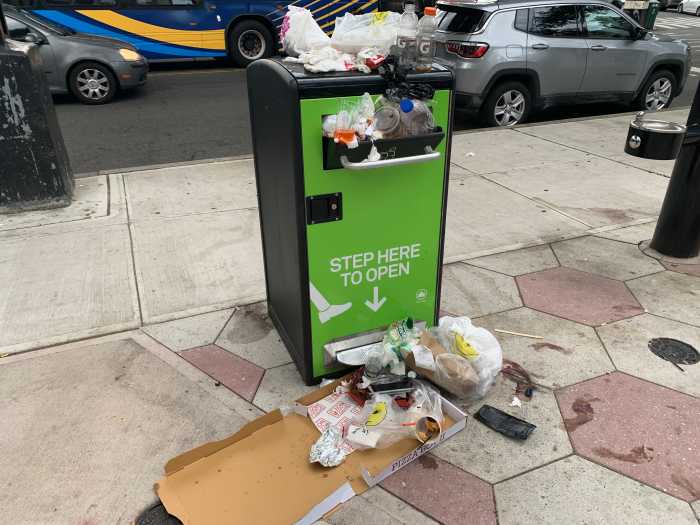Gov. Andrew Cuomo announced Saturday a state budget agreement that includes property tax relief for homeowners linked to local government efficiency and an increase of 5-percent in education spending, plus statewide universal pre-K and reforms to Common Core implementation.
The budget deal, which reportedly comes out to about $140 billion, still requires approval from the state Legislature. The state began printing budget bills late Friday night and all appropriation bills were printed on time, Cuomo said during a conference call with reporters Saturday afternoon.
The budget agreement sets the stage for lawmakers to vote on the bills next week.
“Getting the agreements…and bills produced was a great accomplishment,” Cuomo said.
The governor’s office released several “highlights” from the agreement Saturday morning. At the top of the list was a $1.5 billion plan for property tax relief aimed at increasing government efficiency at the local level and rewarding jurisdictions that stay within the property tax cap and provide a roadmap to savings of 1-percent of their tax levy per year for three years. Homeowners would receive a 2-percent property tax rebate in the form of a check if their local government stays within the tax cap.
State leaders agreed to budget $1.1 billion for school aid, which amounts to a 5-percent increase from the previous year. Of that, $340 million would go toward implementing full-day pre-K across the state, the bulk of which—$300 million—would be set aside for New York City.
If passed, the budget would put into law several reforms to the controversial implementation of Common Core, including banning standardized “bubble tests” for young children, with the goal of focusing more on teaching rather than over-testing, Cuomo’s office said.
Charters schools, which Cuomo called “a complex, controversial issue” that wasn’t in his original budget proposal, would see a three-year incremental increase in tuition funding per student over three years, starting with $250 the first year.
An ethics reform package also inserted into the agreement includes proposals for new anti-bribery and anti-corruption laws, the governor’s office said. It also includes a limited test of public financing of state elections, beginning with the 2014 Comptroller’s race, and the establishment of a new independent enforcement counsel at the Board of Elections, among other reforms.



































